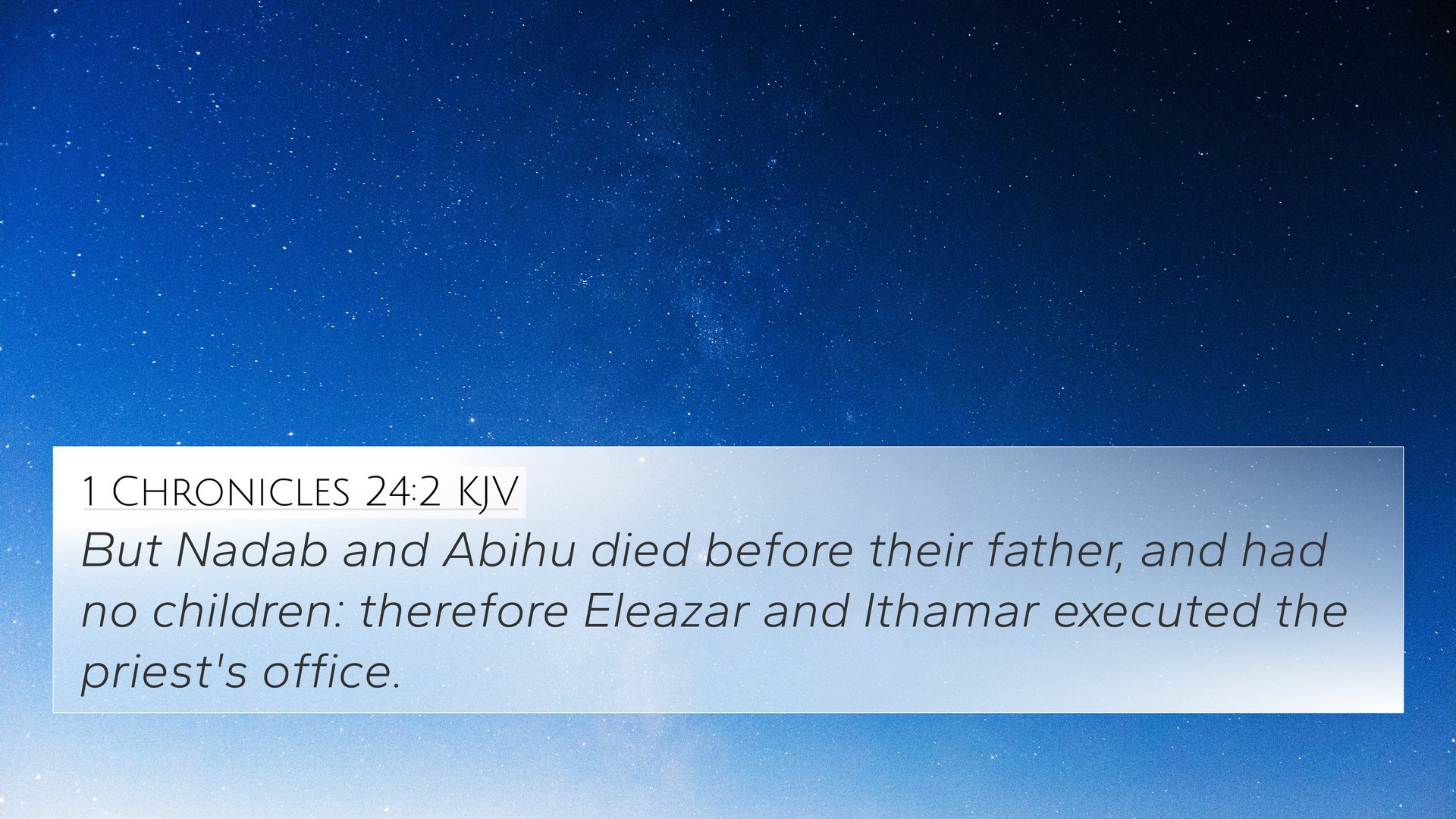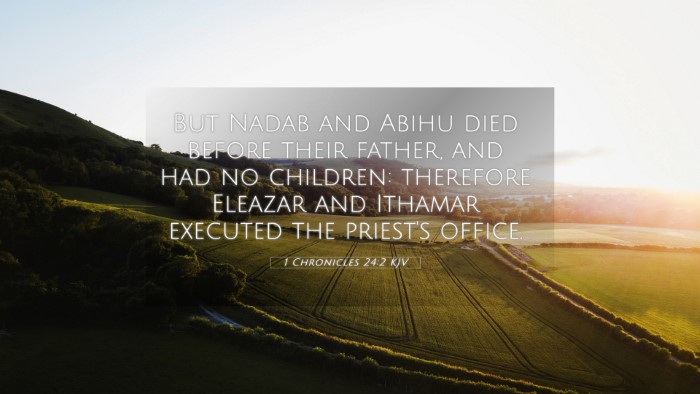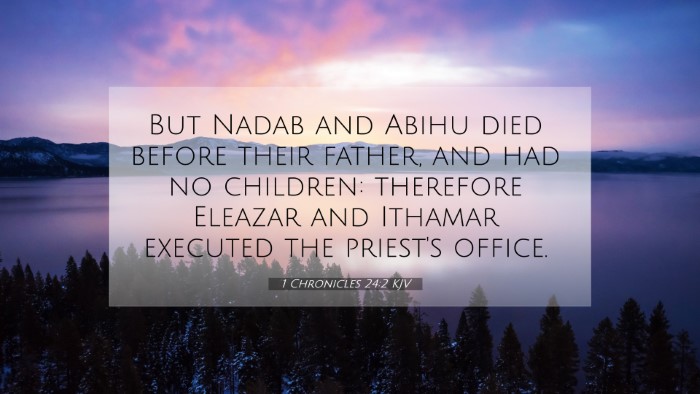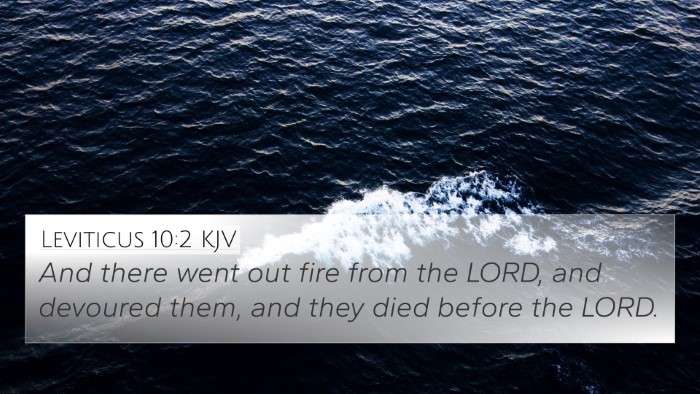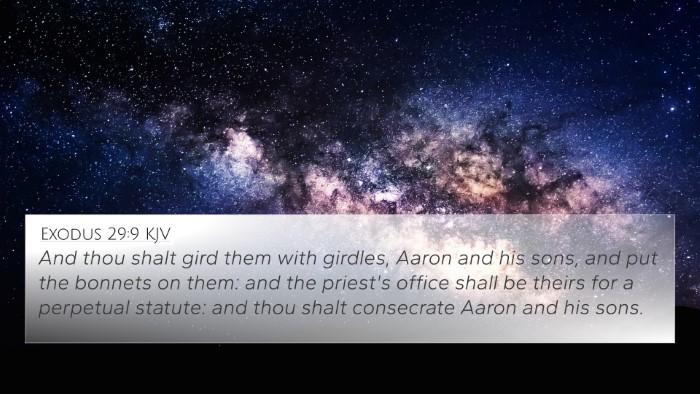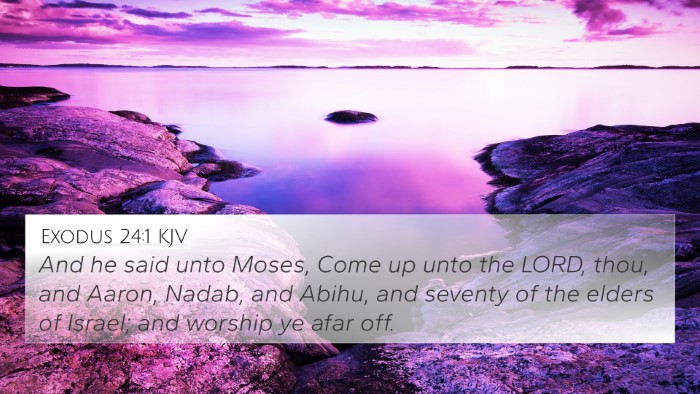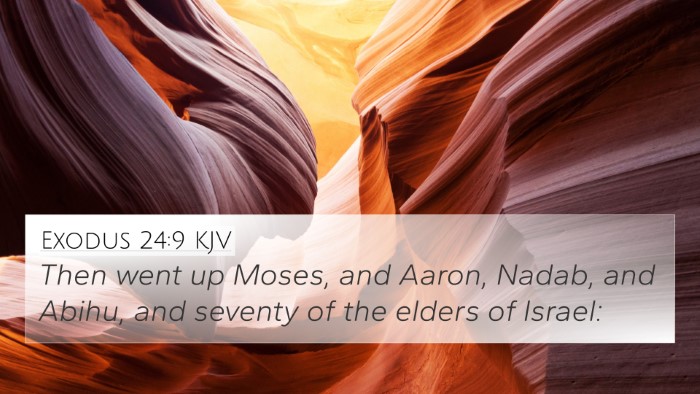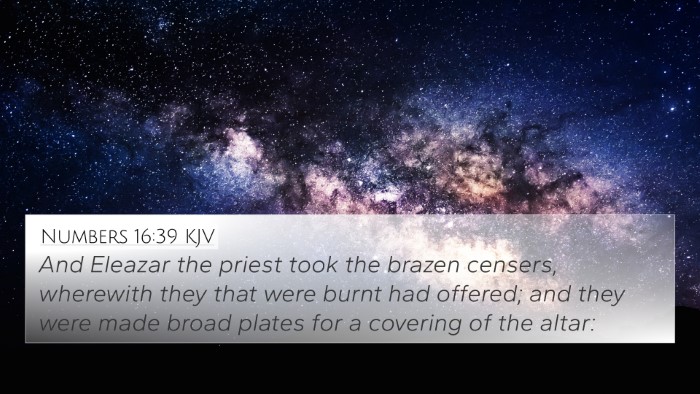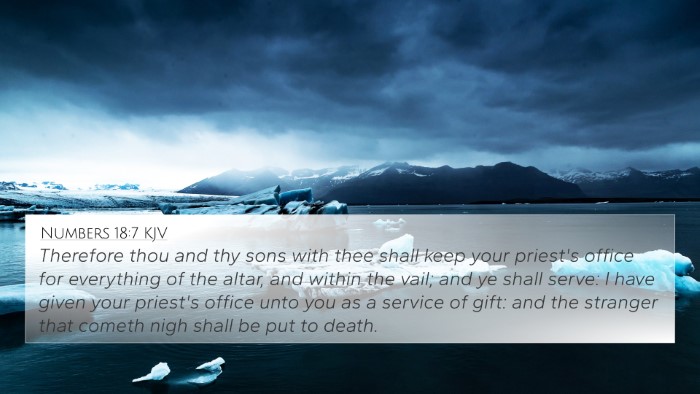Understanding 1 Chronicles 24:2
Verse Text: 1 Chronicles 24:2 states, "And Nadab and Abihu died before their father, and had no children: therefore Eleazar and Ithamar executed the priest's office." This verse is a part of the narrative that discusses the divisions of the priestly families established by King David.
Summary of Meaning
This verse highlights the consequences of Nadab and Abihu's actions, their subsequent deaths, and the implications for the priestly line. In this context, it is important to understand the weight of familial and priestly responsibilities as it pertains to service in the temple.
Insights from Commentaries
Matthew Henry:
- Henry points out that Nadab and Abihu's deaths were a divine judgment for their unauthorized actions. Their demise illustrates the serious nature of the priestly office and the necessity for obedience to God's commandments.
Albert Barnes:
- Barnes provides a historical context, noting how the deaths of these two sons of Aaron signal the peril of approaching God in ways that are not prescribed in the law, reinforcing the sanctity of priestly duties.
Adam Clarke:
- Clarke emphasizes the importance of Eleazar and Ithamar, the remaining sons, following the death of their brothers. His commentary suggests a continuity and necessity for lawful worship in the tabernacle, hinting at how the roles were vital to maintaining a proper relationship between God and His people.
Cross-References
This verse relates to several other scriptures, which deepen the understanding of its significance:
- Leviticus 10:1-2: Discusses how Nadab and Abihu offered strange fire before the Lord, which led to their death.
- Exodus 28:1: Refers to the consecration of Aaron and his sons as priests, establishing the priestly lineage.
- Hebrews 10:31: Mentions the fearfulness of falling into the hands of the living God, underscoring the seriousness of disobedience.
- 1 Peter 2:9: Talks about believers as a royal priesthood, connecting New Testament believers with the Old Testament priestly roles.
- Numbers 3:4: Mentions the deaths of Nadab and Abihu, providing a repeat of their consequences.
- Jeremiah 33:18: Highlights the enduring covenant with the Levitical priesthood, showing God’s commitment to the priestly line.
- Romans 12:1: Encourages believers to present their bodies as living sacrifices, linking to the sacrificial system of Old Testament priests.
Thematic Connections
This verse connects to broader themes within scripture, including:
- The holiness of God and the required sanctity of those who serve Him.
- The persistence of the Aaronic priesthood throughout Israel's history.
- Divine judgment and its implications for worship practices.
- The continuity of God's covenant promises through different generations of priests.
Cross-Referencing Biblical Texts
For those seeking to delve deeper into cross-referencing, the following tools and methods are beneficial:
- Bible Concordance: Helpful for locating specific keywords and themes in scripture.
- Cross-Reference Bible Study: Involves comparing and linking verses that elaborate on similar themes.
- Bible Cross-Reference Guide: A structured approach for studying interrelated scriptures.
- Bible Chain References: Creating a chain of verses that connect various themes.
Conclusion
The analysis of 1 Chronicles 24:2 reveals the intricacies of priestly duties and the severe repercussions of deviating from God's prescribed methods of worship. This verse not only alerts us to the holiness required in service but also connects to broader themes of covenant, sacrifice, and divine judgment found throughout the Bible.
Further Study Suggestions
For those interested, exploring the similarities between this verse and others that deal with the Aaronic priesthood, divine judgment, and worship can provide greater insights into how the thread of holiness weaves through both the Old and New Testaments.
